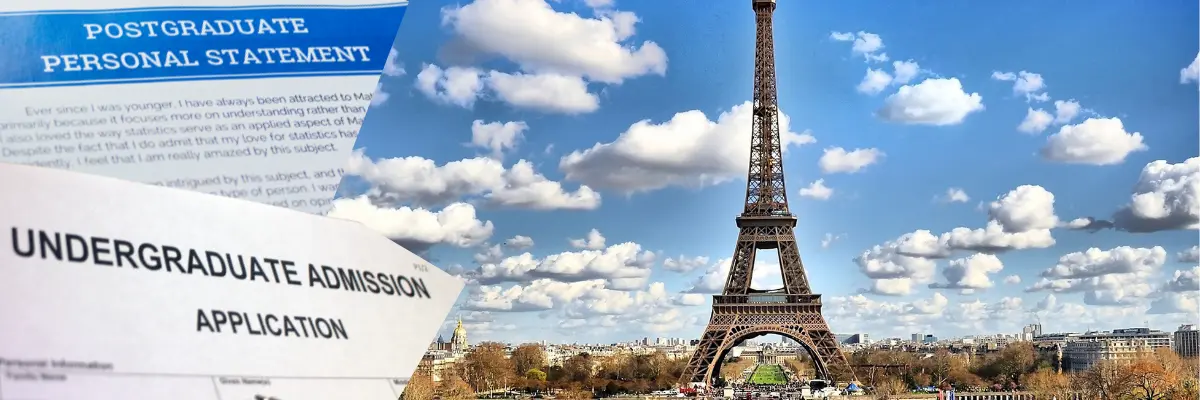12 Jul 2024 | Differences Between Undergraduate and Graduate Studies in France
0
117
Studying abroad in France offers a unique opportunity to experience a world-class education system, rich cultural heritage, and vibrant student life. Whether you are considering undergraduate or graduate studies, understanding the key differences between these levels of education in France is crucial. This article explores the distinctions between undergraduate and graduate studies in France, highlighting the unique aspects of each and helping you make an informed decision for your study abroad journey.
Why Study Abroad in France?
Benefits of Studying in France
France is a popular destination for international students due to its prestigious universities, diverse academic programs, and cultural experiences.
Key Benefits:
Academic Excellence: France is home to some of the world's top universities and research institutions.
Cultural Immersion: Experience France's rich history, art, cuisine, and traditions.
Language Skills: Opportunity to learn or improve your French, a valuable language in global business and diplomacy.
Networking Opportunities: Connect with students and professionals from around the globe.
France Study Levels
Overview of France Study Levels
The French higher education system is divided into several levels, each with specific academic requirements and outcomes.
Key Study Levels:
License (Bachelor's Degree): The first cycle of higher education, typically lasting three years.
Master's Degree: The second cycle, usually completed in two years.
Doctorate (Ph.D.): The third cycle, requires three to six years of research and study.
Undergraduate Studies in France
Structure of Undergraduate Programs
Undergraduate programs in France, known as "Licence" programs, provide a broad foundation in various academic disciplines.
Key Features:
Duration: Typically three years.
Curriculum: Combines general education courses with specialized courses in the chosen field of study.
Assessment: Continuous assessment through exams, projects, and assignments.
Admission Requirements
Admission to undergraduate programs in France requires specific academic qualifications.
Common Requirements:
High School Diploma: Equivalent to the French Baccalauréat.
Language Proficiency: Proof of French or English language proficiency, depending on the program.
Entrance Exams: Some programs may require entrance exams or interviews.
Student Experience
Undergraduate students in France experience a dynamic and engaging academic environment.
Key Aspects:
Campus Life: Access to various student activities, clubs, and organizations.
International Community: Opportunities to interact with students from diverse backgrounds.
Support Services: Academic advising, tutoring, and career services.
Graduate Studies in France
Structure of Graduate Programs
Graduate programs in France include Master's and Doctorate levels, focusing on advanced academic and professional training.
Master's Degree:
Duration: Typically two years.
Specialization: In-depth study in a specific field, often with a research component.
Thesis: Completion of a research thesis or final project.
Doctorate (Ph.D.):
Duration: Three to six years.
Research Focus: Intensive research leading to a dissertation.
Mentorship: Close supervision and guidance from faculty advisors.
Admission Requirements
Graduate programs have more stringent admission criteria compared to undergraduate programs.
Common Requirements:
Bachelor's Degree: Relevant undergraduate degree.
Language Proficiency: Proof of proficiency in the language of instruction.
Recommendation Letters: Letters from professors or professionals.
Research Proposal: For Ph.D. programs, a detailed research proposal may be required.
Student Experience
Graduate students in France engage in advanced academic and professional activities.
Key Aspects:
Research Opportunities: Access to cutting-edge research facilities and projects.
Professional Development: Opportunities for internships, conferences, and networking.
Academic Rigor: High expectations for independent study and research.
France Degree Differences
Curriculum and Coursework
The curriculum and coursework vary significantly between undergraduate and graduate studies.
Undergraduate Programs:
Broad Curriculum: A mix of general education and specialized courses.
Foundation Knowledge: Focus on building a broad knowledge base.
Lectures and Tutorials: Combination of large lectures and small tutorial sessions.
Graduate Programs:
Specialized Curriculum: Focused on a specific field of study.
Advanced Knowledge: Emphasis on deepening expertise and conducting research.
Seminars and Workshops: Interactive and discussion-based learning.
Academic Expectations
The academic expectations for undergraduate and graduate students differ in terms of depth and scope of study.
Undergraduate Studies:
Guided Learning: More structured learning environment with regular assessments.
Introductory Research: Introduction to research methods and practices.
Graduate Studies:
Independent Learning: Greater emphasis on self-directed study and research.
Advanced Research: Conducting original research and contributing to the field.
Career Opportunities
The career opportunities available to students also vary based on the level of education.
Undergraduate Degrees:
Entry-Level Positions: Suitable for entry-level roles in various industries.
Further Studies: Foundation for pursuing graduate studies or professional training.
Graduate Degrees:
Advanced Roles: Qualification for higher-level positions and specialized careers.
Academic Careers: Opportunities for teaching and research positions in academia.
Conclusion
Understanding the differences between undergraduate and graduate studies in France is essential for making informed decisions about your study abroad journey. Whether you choose to pursue a Licence, Master's, or Doctorate, France offers a rich educational experience that combines academic excellence with cultural immersion. By considering the structure, admission requirements, and career opportunities associated with each study level, you can select the path that best aligns with your academic and professional goals.
For more assistance, please visit our study abroad consultancy services and explore our wide range of offerings for students interested in studying in the USA, studying in the UK, studying in Canada, studying in Australia, studying in Ireland, and many other countries.
FAQs
1. What are the main differences between undergraduate and graduate studies in France?
Ans. Undergraduate studies focus on building a broad knowledge base, while graduate studies emphasize specialized knowledge and research.
2. How long does it take to complete a Master's degree in France?
Ans. A Master's degree in France typically takes two years to complete.
3. Are there specific language requirements for studying in France?
Ans. Yes, most programs require proof of proficiency in either French or English, depending on the language of instruction.
4. What types of support services are available for international students in France?
Ans. Support services include academic advising, tutoring, career services, and access to various student activities and clubs.
5. Can I work while studying in France?
Ans. Yes, international students can work part-time while studying, but there are regulations and limits on the number of hours per week.


